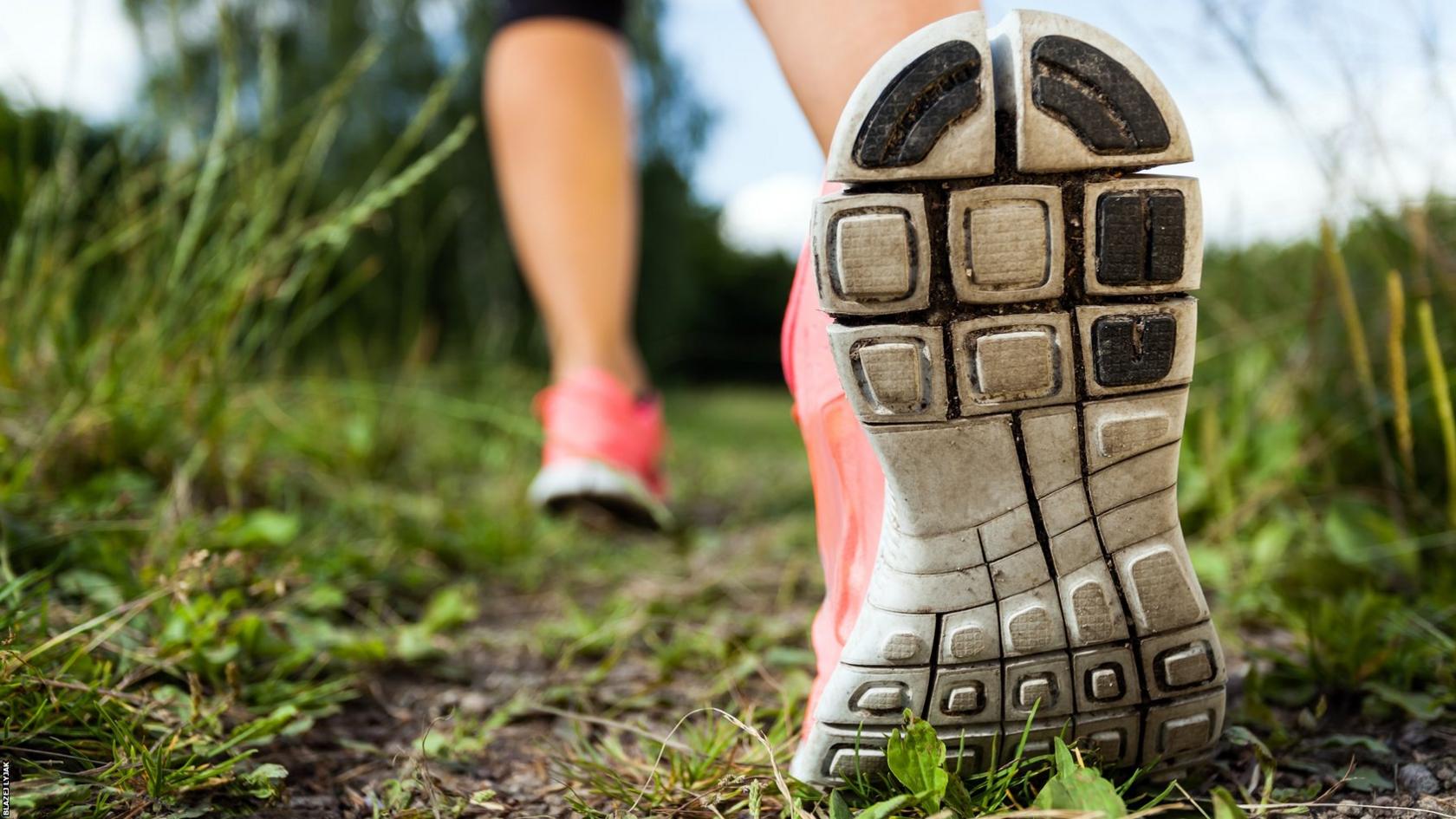Great North Run: Brendan Foster's buddy, fitness to save sight & 10 steps to finish
- Published
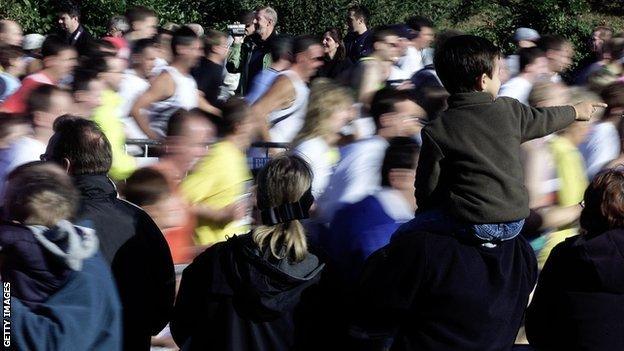
Spectators cheer on runners at the Great North Run
There are as many reasons to take part in the Great North Run as there are competitors, and so many are worthy of a mention.
Sunday's race features runners of all ages, abilities and backgrounds, and here are three that caught our eye at Get Inspired...
Dave Leng - Gateshead Harriers
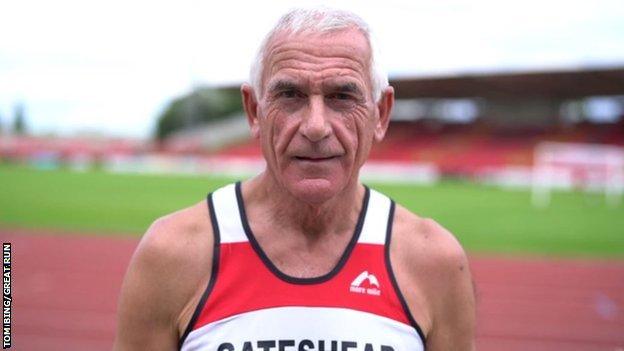
Dave Leng (pictured at Gateshead Stadium) volunteers and chaperones at every Great North Run
Dave Leng is bit of a legend at Gateshead Harriers. The affable 69-year-old has been a member of the club since 1963 and taken part in every Great North Run - bar one - since its inception in 1981.
Dave was a boyhood Harriers team-mate of Great North Run founder and Olympic Brendan Foster. "Sometimes we'd beat him in races as kids - then he got really good," he says.
But he doesn't just run in this iconic race, he also volunteers and chaperones, helping out at the start of the junior and mini races and chaperoning celebrity runners. In the past this has included Brendan's BBC colleague and fellow retiree John Motson in the main event.
"I've taken Motty around and did about 18 or 19 with [presenter and commentator] Ray Stubbs. I just try to make sure they get around ok - as long as they don't go too fast!" he added.
But it is for the wider community that Dave reserves his real passion, extending his volunteering to events such as Great Run Local,, external a series of 5K and 2K runs around the country, open to anyone.
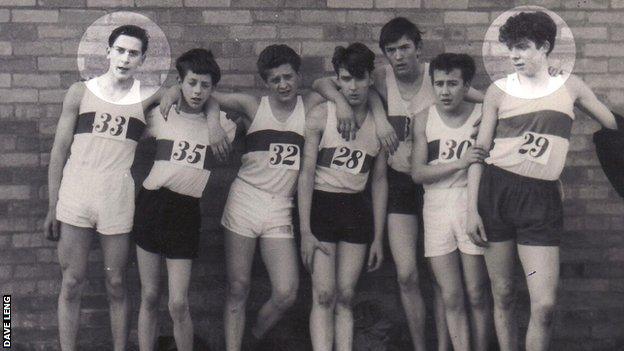
Dave (far left), Brendan Foster (far right), both aged 15 in 1963, with fellow schoolboy runners from Gateshead Harriers
"We run the one at Gibside, external [a National Trust property, south west of Gateshead] and when we started off in 2014 there were a handful of people, but now we get 150 to 200 people turning up on a Sunday morning," says Dave.
"For the 2K you have families, people with pushchairs, little kids and dogs and then you have the 5K, where you have some club runners who want to have a go at getting a good time, but it's for everybody who just wants to get round the course."
As for Sunday's race, Dave believes the Junior North Run is a hugely important part of the event. "It encourages families to get out and get active and do something - that might be joining an athletics club or becoming volunteers themselves," he said.
"And I love seeing the kids growing up. It's wonderful to see them coming back year after year."
Darren Farrell on hidden dangers
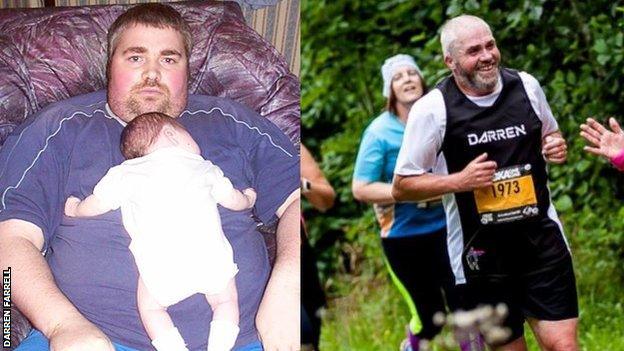
Darren Farrell lost seven stone in his battle with type-2 diabetes
Three years ago, Darren Farrell, from Gateshead, weighed 21 stone. Walking even short distances would leave him out of breath and pouring with sweat. He had type-2 diabetes and suffered viral complications after having chicken pox.
"I woke up one morning and I'd lost most of the sight in my left eye. It was a wake-up call - enough was enough," says Darren, who resolved to make immediate changes to his lifestyle and diet.
"I started walking the school run [six miles a day in total] and in six months I'd lost four stone."
Eventually he was able to jog short distances and now, seven stone under his peak weight, he's taking part in the Great North Run.
"It took me two years to get to the point where I could actually run - going from lamp-post to lamp-post, running for a minute, walking for a minute, getting my heart-rate and breathing sorted so eventually I could run non-stop," Darren added.
His sight may never improve, but he is having a course of injections and laser treatment to prevent any further deterioration, helped by his new, healthy lifestyle. "There is hope," he says.
Darren is running to raise money for the disability charity Scope and raise awareness of the hidden dangers and side-effects of obesity and type-2 diabetes.
Scope's sign-up process for next year's Great North Run is already open, so if you want to get involved for 2018, click here., external
Team Brenda - walking tall
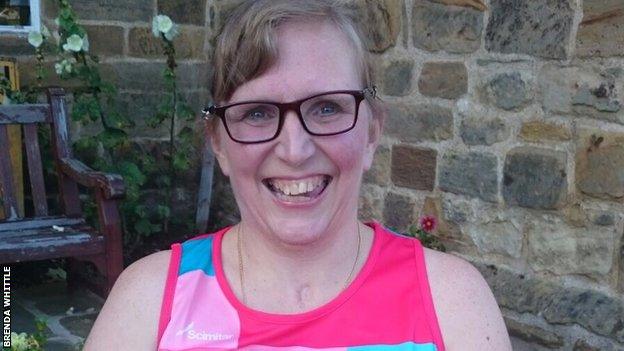
Dr Brenda Whittle is aiming to walk the last 10 steps of the Great North Run
In 1997 Dr Brenda Whittle had just finished a PhD in chemistry and was attending a conference in Canada. She contracted an unidentified brain virus and was left unable to walk or talk. Doctors said her condition was permanent.
For the past 15 years Brenda has been living at Marske Hall (Leonard Cheshire Disability) near Redcar, where she has been having physiotherapy and re-learning the motor skills of speech and movement.
This year, she's planning to complete the Great North Run in her wheelchair and just before the finish line, she will walk the final 10 steps of the race.
"I decided to take on the run because I like to challenge myself and keep myself fit. It's always good to push yourself," she says.
"Training has been painful but fun. When I cross the finish line I'll feel proud and probably flushed! I will also feel very grateful for all the support I've been given."
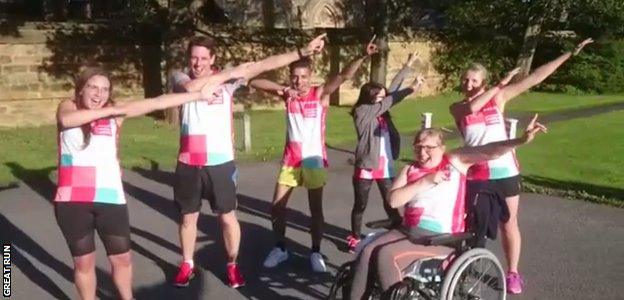
Team Brenda practise their 'Bolt' pose in preparation for the Great North Run
Team Brenda - volunteers from the staff at Marske Hall - will wheel her to just before the finish line.
"I know that it is often painful and frustrating for Brenda, but she is so committed to getting herself as independent as possible that I cannot see anything stopping her," says Ruth Hebden, volunteer co-ordinator at Marske Hall.
The goal is to raise £5,000, which will go towards new physio and rehabilitation equipment for the care home.
"Brenda is determined to support her fellow residents, many of whom are also working hard to maintain or regain strength and mobility," adds Ruth.
"The money that she and the volunteers raise will have a long-lasting, positive effect on the residents at the home."
Find out more about the work of Leonard Cheshire Disability and how you can get involved, here., external
You can watch the Great North Run live on BBC One from 09:30-13:30 BST on Sunday, 10 September, with live text commentary on the BBC Sport website and coverage on the Red Button. A highlights programme follows on BBC Two at 19:00 (BBC Two Wales 22:30).
- Published7 September 2017
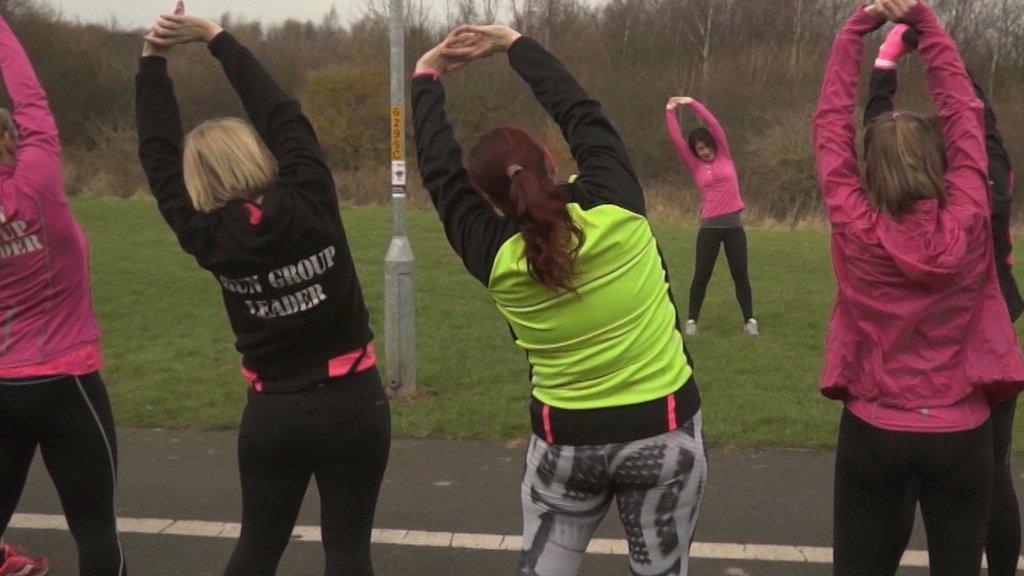
- Attribution
- Published15 August 2017
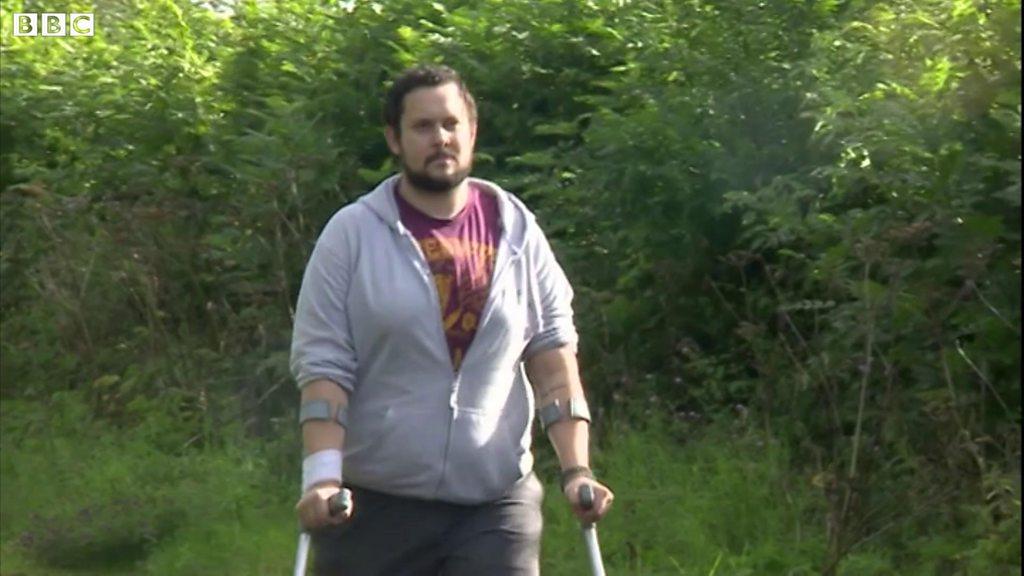
- Published8 September 2017
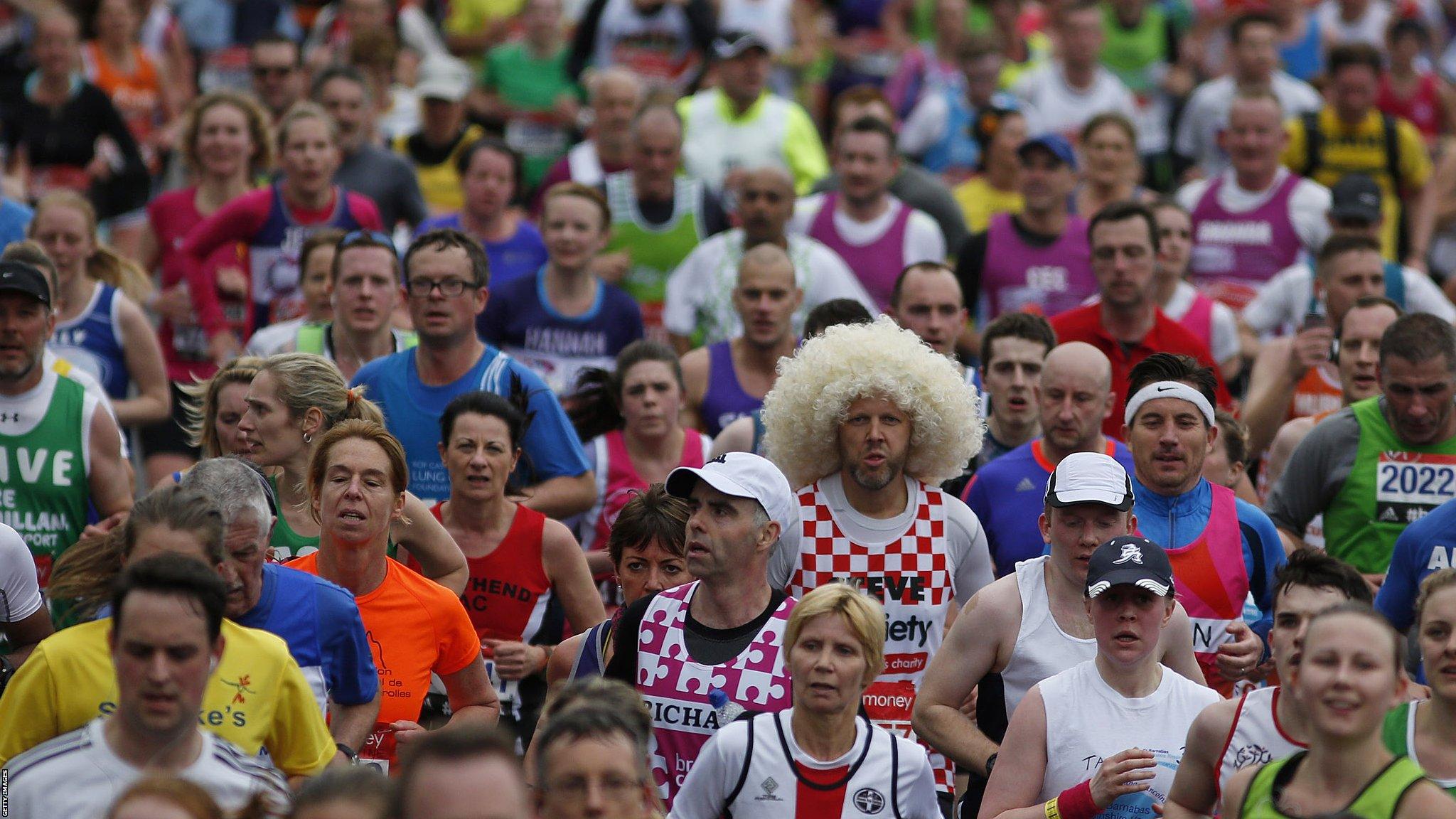
- Published3 April 2019
